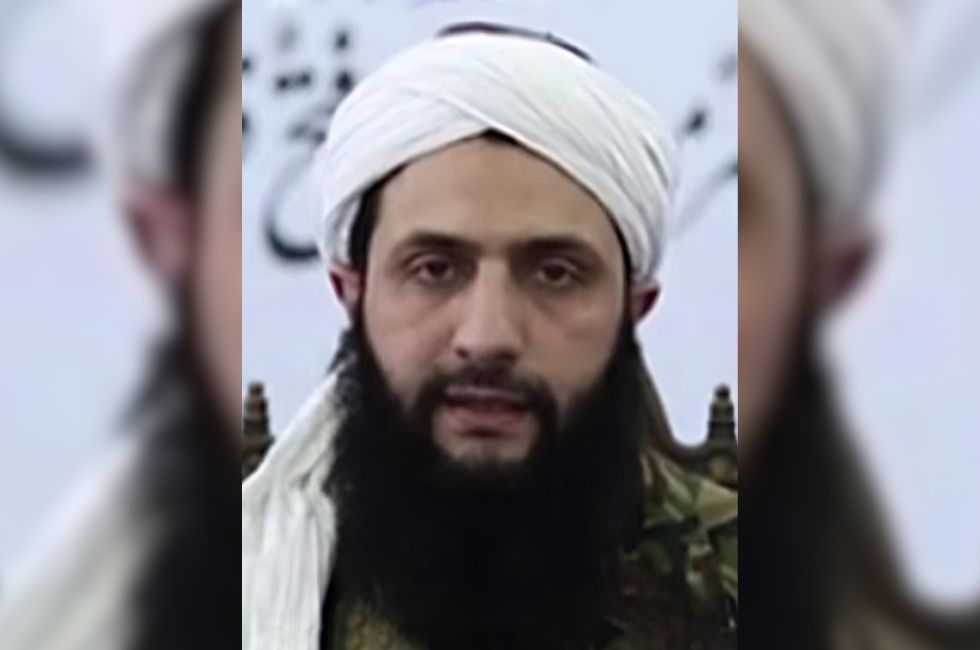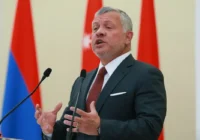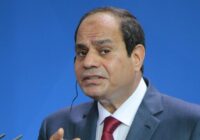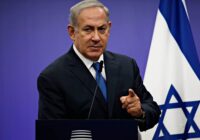Ahmad Hussein al-Shara, aka Abu Mohammed al-Jolani, would like you to think he is a changed man. These days, al-Jolani, a 41-year-old one-time al-Qaeda and Islamic State operative with a $10 million bounty on his head, no longer spews jihadist fire and brimstone. Instead, he preaches pluralism, religious tolerance, diversity and forgiveness as his Hay’at Tahrir al-Sham (HTS) rebels take control of Damascus, the Syrian capital.
With the toppled President Bashar al-Assad’s departure to Moscow, Russia, the entire Assad family’s 54-year hold on Syria has reached its end. Now many in the country and the international community ask which one is the real al-Jolani.
In a recent interview, al-Jolani, the face of the Syrian rebels, insisted that his evolution was natural. “A person in their twenties will have a different personality than someone in their thirties or forties, and certainly someone in their fifties. This is human nature,” al-Jolani said.
The real al-Jolani will likely emerge in the way he approaches the formation of a post-Assad transition government, as well as the rights, security and safety of minorities. These include the Shiite Muslim Alawites from which the Assads hail and who long supported their brutal rule.
Moreover, even those who question the sincerity of his conversion suggest that al-Jolani may be the one rebel commander who can hold Syria together. “There is no local military power to stand (up to) or compete with Jolani,” an associate of the rebel leader said when he still publicly identified himself as a jihadist. The former associate warned that if al-Jolani fails, Syria, like Libya, will become a state torn apart by rival armed militias.
Al-Jolani “hasn’t changed at all, but there’s a difference between being in battle, at war, killing, and running a country,” the former associate said. He suggested the rebel leader’s more moderate and conciliatory posture stemmed from a recognition that the Islamic State’s sectarian bloodlust was a mistake. He also stated that al-Jolani “now considers himself a statesman,” and claimed the rebel leader may follow suggestions that he turn the group into a political party by transferring its military wing to a reconstituted Syrian military.
Meanwhile, the HTS paramilitary group moved quickly to safeguard public buildings in Damascus and manage the presence of heavily armed factions in the capital. “We will soon ban gatherings of armed people,” said Amer al-Sheikh, a HTS security official.
Al-Jolani needs to earn international trust
On December 10, 2024, the rebels appointed Mohammed al-Bashir as caretaker prime minister for four months. It was not immediately clear what the next step would be.
Al-Bashir ran the rebel-led Salvation Government in their stronghold in Syria’s northern Idlib region. Since HTS launched its offensive, he has assisted captured cities, including Aleppo, Hama and Homs, in installing post-Assad governance structures.
Beyond ensuring domestic security and stability, al-Jolani will need to secure international support for the reconstruction and rehabilitation of traumatised and war-ravaged Syria. To do so, al-Jolani and HTS will have to convince Syrian minorities, segments of Syria’s majority Sunni Muslims and the international community that they have genuinely changed their colors and are not wolves in sheep’s clothing.
A questionable human rights record that has persisted long after they disavowed jihadism compounds HTS and al-Jolani’s reputational problems. As recently as August 2024, the United Nations accused the group of resorting to extrajudicial killings, torture and the recruitment of child soldiers.
“HTS detained men, women, and children as young as seven. They included civilians detained for criticising HTS and participating in demonstrations,” the UN Human Rights Council said in a report. “These acts may amount to war crimes.”
Even so, this week, UN Special Envoy for Syria Geir Pedersen acknowledged that HTS has sought to address concerns in recent days.
“The realities so far is that the HTS and also the other armed groups have been sending good messages to the Syrian people,” Pedersen said. “They have been sending messages of unity, of inclusiveness… We have also seen… reassuring things on the ground.”
Pedersen was referring to rebel assurances given to minorities, a pledge not to impose restrictions on women’s clothing, amnesty for conscripted personnel of Assad’s military, the rebels reaching out to Assad government officials and efforts to safeguard government institutions.
United States officials echoed Pedersen despite the US designation of HTS as a terrorist organization.
Incidents in Damascus and Hama
Against the backdrop of his track record in recent years in administering the Idlib region, the last rebel-held stronghold in Syria when the civil war’s battle lines were frozen in 2020, al-Jolani has sought to project an image of tolerance, reconciliation and ability to deliver public goods and services.
Al-Jolani turned Idlib, historically the country’s poorest province, into its fastest-growing region, despite his autocratic rule and frequent Syrian and Russian air attacks. To his credit, there were no major reports of attacks on Christians, Alawites and other minorities or acts of revenge against representatives of the Assad regime, including the military. Further, there was no mass looting as HTS fighters took over cities and towns, including Damascus.
That is not to say that everything unfolded incident-free. One Damascus resident reported that unidentified armed men had knocked on the door of an acquaintance and asked about his religion. A neighbor returned home to find his door broken down and his apartment looted. Similarly, a nearby government building was looted despite instructions from rebel leaders against violating public property. The rebels imposed an overnight curfew in Damascus to maintain law and order.
Earlier, a man in Hama told prisoners sitting on the ground with their hands tied behind them in a video on social media, “We will heal the hearts of the believers by cutting off your heads, you swine.”
HTS’s statement on Syrian chemical weapons
Meanwhile, with Israel bombing Syrian arsenals of strategic weapons, including suspected chemical weapons sites, HTS missed an opportunity to unequivocally garner trust. In a statement, the group said it will safeguard the country’s remaining chemical weapons stockpiles and ensure they aren’t used against citizens. This is a stark contrast to the Assad regime, which used chemical weapons on several occasions against Syrian civilians.
In the wake of Assad’s fall, the Organisation for the Prohibition of Chemical Weapons (OPCW), the UN chemical weapons watchdog, said it had contacted unidentified Syrian authorities “with a view to emphasising the paramount importance of ensuring the safety and security of all chemical weapons-related materials and facilities.”
HTS responded, saying, “We clearly state that we have no intention or desire to use chemical weapons or any weapons of mass destruction under any circumstances. We will not allow the use of any weapon, whatever it may be, against civilians or [allow them to] become a tool for revenge or destruction. We consider the use of such weapons a crime against humanity.”
The group would have done itself a favor by offering to destroy under international supervision what chemical weapons stockpiles fall into its hands and/or ask OPCW to assist in searching for such weapons.
[The Turbulent World first published this piece.]
[Lee Thompson-Kolar edited this piece.]
The views expressed in this article are the author’s own and do not necessarily reflect Fair Observer’s editorial policy.
Support Fair Observer
We rely on your support for our independence, diversity and quality.
For more than 10 years, Fair Observer has been free, fair and independent. No billionaire owns us, no advertisers control us. We are a reader-supported nonprofit. Unlike many other publications, we keep our content free for readers regardless of where they live or whether they can afford to pay. We have no paywalls and no ads.
In the post-truth era of fake news, echo chambers and filter bubbles, we publish a plurality of perspectives from around the world. Anyone can publish with us, but everyone goes through a rigorous editorial process. So, you get fact-checked, well-reasoned content instead of noise.
We publish 2,500+ voices from 90+ countries. We also conduct education and training programs
on subjects ranging from digital media and journalism to writing and critical thinking. This
doesn’t come cheap. Servers, editors, trainers and web developers cost
money.
Please consider supporting us on a regular basis as a recurring donor or a
sustaining member.
Will you support FO’s journalism?
We rely on your support for our independence, diversity and quality.









Comment